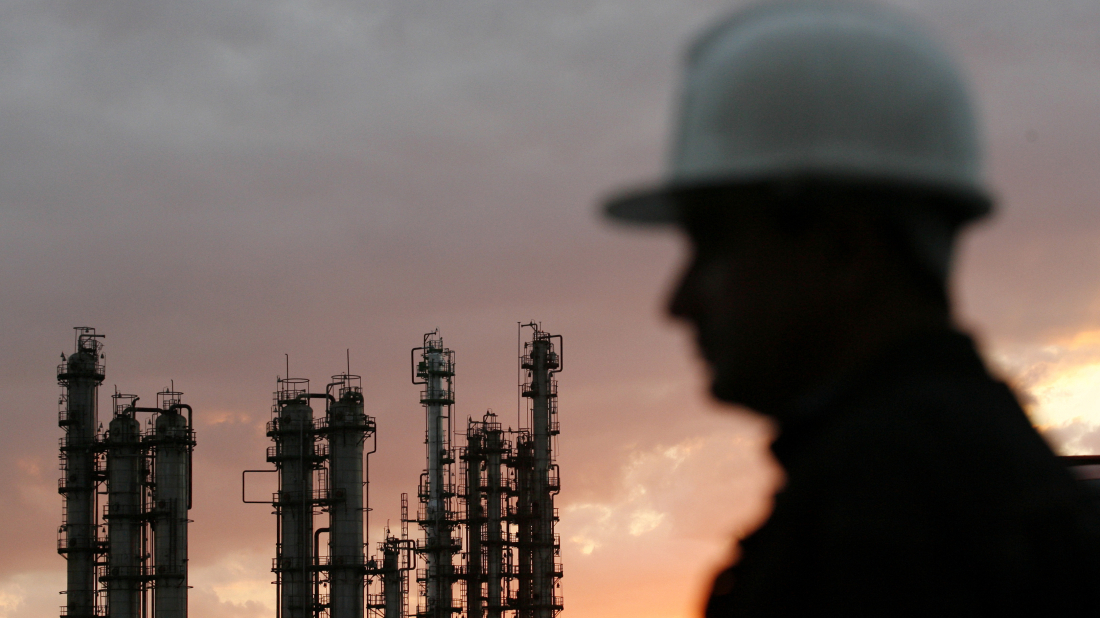Hungary, Slovakia suspend diesel exports to Ukraine amid pipeline dispute
Hungary and Slovakia announced a suspension of diesel exports to Ukraine on Wednesday....

The European Union’s next wave of eastward enlargement, particularly involving candidate countries in Central and Eastern Europe, could prove decisive for Europe’s energy security and competitiveness.
Russia’s large-scale invasion of Ukraine exposed major weaknesses in Europe’s energy systems, especially in Central and Eastern Europe. Since then, nations in the region have taken significant steps to enhance energy security and reduce dependence on Russia.
They plan to do this through new liquefied natural gas (LNG) infrastructure, renewable energy promotion, and expanded cross-border connectivity.
These measures have placed Central and Eastern Europe at the heart of the continent’s energy transition. As the EU prepares for its next round of enlargement, it must carefully consider how to integrate energy security and transition priorities into the process.
This expansion could become a catalyst for competitiveness, security, and geopolitical influence—or, conversely, deepen internal divisions and create new vulnerabilities.
Energy security must take priority
The EU’s next seven-year budget, the Multiannual Financial Framework, offers a rare opportunity for Brussels to strategically finance cross-border energy infrastructure, including in candidate states.
Such investments are essential for a resilient and integrated European energy market. By prioritising energy security within this framework, Brussels can strengthen supply chains, accelerate market integration, and reduce risks for the economies of candidate countries.
Ukraine’s role and transatlantic cooperation
As the EU plans for Ukraine’s eventual membership, it should accelerate the country’s energy integration. This would enhance both Europe’s energy security and competitiveness.
While the conflict has devastated much of Ukraine’s energy infrastructure, reconstruction provides an opportunity to build clean technologies, decentralised grids, and key interconnectors.
Ukraine’s gas storage capacity could bolster regional energy security, while collaboration with U.S. partners on energy components would generate jobs and innovation.
Building this process on a transatlantic foundation is crucial. U.S. innovations in nuclear technology—particularly small modular reactors—along with financial mechanisms, could accelerate Ukraine’s integration into the EU’s energy system.
Framing Ukraine’s accession as part of a broader energy recovery plan aligns the geopolitical and economic interests of Europe and Washington.
The 2040 test: enlargement and climate goals
As enlargement progresses, the EU must consider how the integration of candidate countries affects its emissions reduction strategy.
The EU has recently proposed a 2040 climate goal: cutting emissions by 90% compared to 1990 levels. This target will reshape Europe’s energy sector and economy over the next two decades, but will likely be finalised before new members join.
This places candidates in a “take it or leave it” situation—facing ambitious, resource-intensive commitments without negotiation.
Such an approach risks undermining unity and fuelling discontent in both candidate and existing member states. To avoid this, potential members must be engaged early in talks to ensure the 2040 goals are achievable.
Brussels’ geopolitical opportunity
Former Italian Prime Minister Mario Draghi has warned that Europe must abandon the illusion that economic power alone guarantees geopolitical influence.
Without coordinated action, Europe risks falling behind in industrial competitiveness, energy security, and global clout.
By linking enlargement strategically to Central and Eastern Europe’s energy security, the EU can reassert its geopolitical role.
Integrating candidate countries into its energy systems, investing in their infrastructure, and aligning transatlantic goals can turn Europe’s vulnerabilities into strengths.
The continent now stands at a crossroads: investing in the energy security of candidate nations, deepening transatlantic cooperation, and ensuring fair climate commitments will define Europe’s competitive, secure, and sustainable future.
Ruben Vardanyan has been sentenced to 20 years in prison by the Baku Military Court after being found guilty of a series of offences including war crimes, terrorism and crimes against humanity.
The Pentagon has threatened to designate artificial intelligence firm Anthropic as a “supply chain risk” amid a dispute over the military use of its Claude AI model, according to a report published Monday.
Representatives of Ukraine, Russia and the United States are set to meet in Geneva for a third round of trilateral negotiations aimed at ending the nearly four-year war, even as both sides intensify military pressure on the ground.
President Donald Trump said he will be involved “indirectly” in nuclear negotiations between the United States and Iran in Geneva, as both sides resume diplomacy against a backdrop of military pressure and deep mistrust.
The drumbeats have finally faded at the Marquês de Sapucaí, bringing the competitive phase of the Rio Carnival 2026 to a dazzling close. Over two marathon nights of spectacle, the twelve elite schools of the "Special Group" transformed the Sambadrome into a riot of colour.
U.S. President Donald Trump on Wednesday sought to highlight his outreach to Black Americans during a White House reception marking Black History Month, held months before November’s midterm elections.
Hungary and Slovakia announced a suspension of diesel exports to Ukraine on Wednesday.
A platoon of Swedish Air Force Rangers is training in Greenland as part of the ongoing “Arctic Endurance” exercise, according to Sweden’s military.
U.S.-mediated talks between Russia and Ukraine in Geneva ended after two days of negotiations that Ukrainian President Volodymyr Zelenskyy described as difficult, while signalling progress on the military track.
Millions of Muslims around the world have begun observing Ramadan, the ninth month of the Islamic lunar calendar and the most sacred period in Islam.
You can download the AnewZ application from Play Store and the App Store.

What is your opinion on this topic?
Leave the first comment